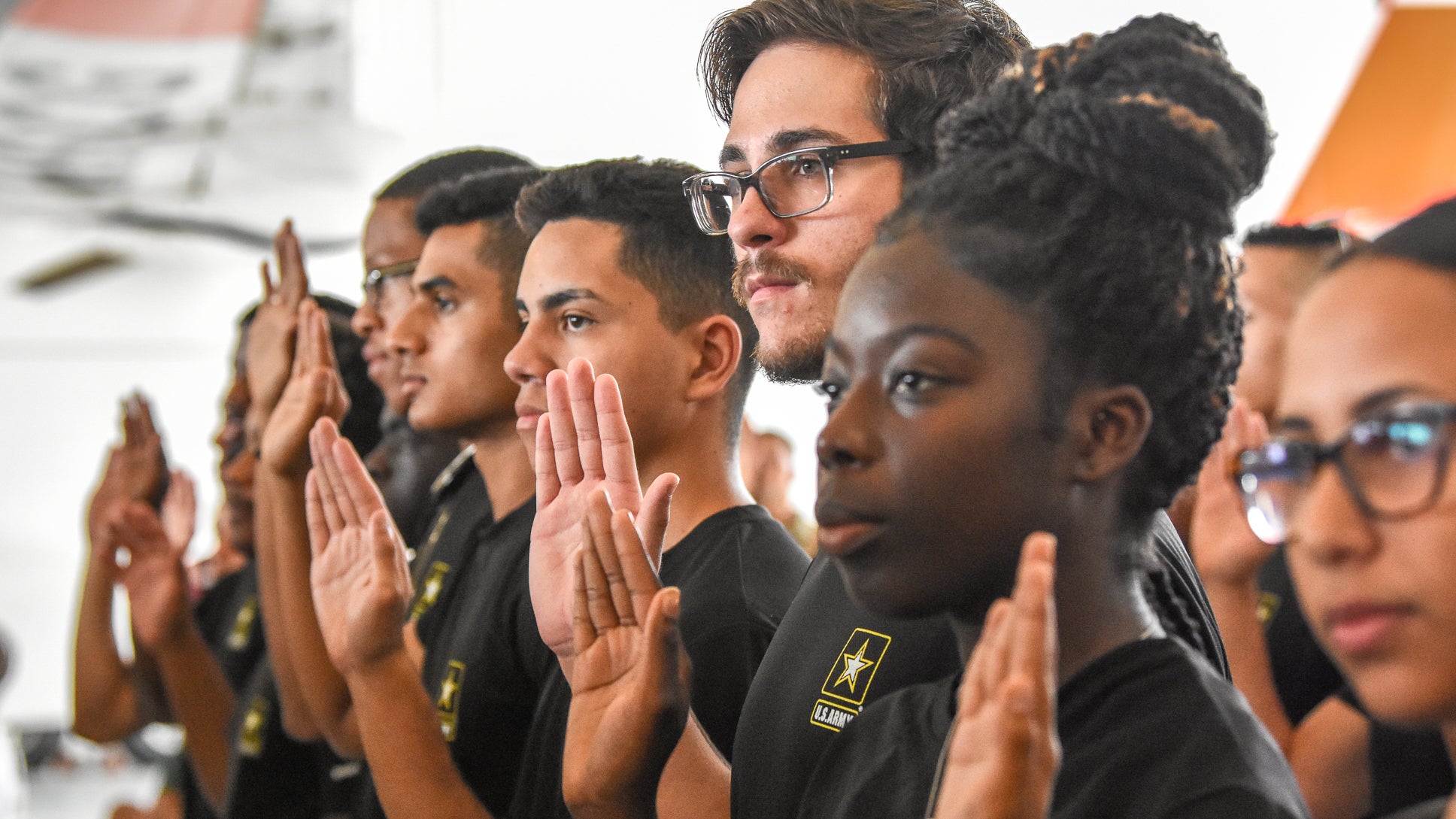Civil-Military Divide Hinders Recruiting Efforts
Civil-Military Divide Hinders Recruiting Efforts

Fewer Americans than ever are connected to the military, creating a civil-military divide that poses a challenge to the recruitment of qualified, skilled individuals to ensure national security, according to the final report from the National Commission on Military, National, and Public Service.
The report, “Inspired to Serve,” released March 25, recommends several steps to help narrow the civil-military gap and increase awareness of military service. This will ensure that the all-volunteer force “continues to attract the most qualified personnel,” commission member Debra Wada, former assistant Army secretary for manpower and reserve affairs, said in a conference call with the media.
“Fewer than one in five young adults can name all five branches of the military,” Wada said, while citing one of the commission’s recommendations that including women in the selective service registration process would broaden the pool of critical skills the nation will need for the future of warfare.
“Although the all-volunteer force is our first line of military defense, selective service is an essential component of the military’s preparedness to meet future national security needs,” Wada said. “The selective service system must be maintained and improved to be prepared for national emergencies that would require mandatory military service.”
The changing nature of warfare, including rapid technological advancements, the growing use of unmanned systems and cyber warfare, “has heightened the need for individuals with critical skills,” she said. The best way to ensure those skills are available when needed would be through a voluntary mechanism such as a critical skills individual ready reserve, she said.
“A qualified and capable force means we must extend the registration requirement to all Americans, men and women,” Wada said.
Congress and the president established the 11-member National Commission on Military, National, and Public Service in fiscal 2017 as part of the National Defense Authorization Act. The commission was charged with conducting a review of the military selective service process and considering ways of increasing participation in military, national and public service “in order to address national security and other public service needs of the Nation.”
In two years of study, including meeting with a broad cross section of Americans, the commission headed by former congressman and retired Army Brig. Gen. Joseph Heck discovered that a culture of service must be created across the nation to ensure the “long-term sustainability of the all-volunteer force” and strengthen the relationship between citizens and the military.
Other recommendations from the commission include improving military outreach around the country with community-building efforts that include more access to military bases and facilities, partnerships between National Guard and Reserve units and local schools, and enhanced promotion of military service by members of Congress.
The commission also recommends increasing flexibility for the military to move personnel between different components of service and to recruit individuals from the private sector with key skills in areas such as cyber, health or engineering.
The report also recommends expanding opportunities for youth to explore service through the Junior ROTC program and promoting administration of the Armed Services Vocational Aptitude Battery test; strengthening recruiting and marketing by investing more in underrepresented markets and hometown recruiting programs; and boosting educational support for students pursuing degrees, certificates and certifications through technical and vocational programs in return for commitment to enlisted service.
See the commission’s full report here.

